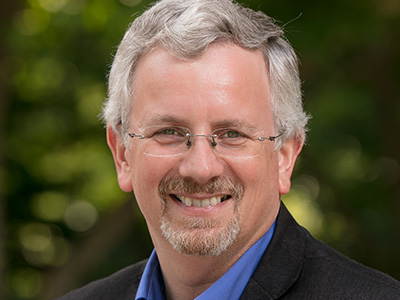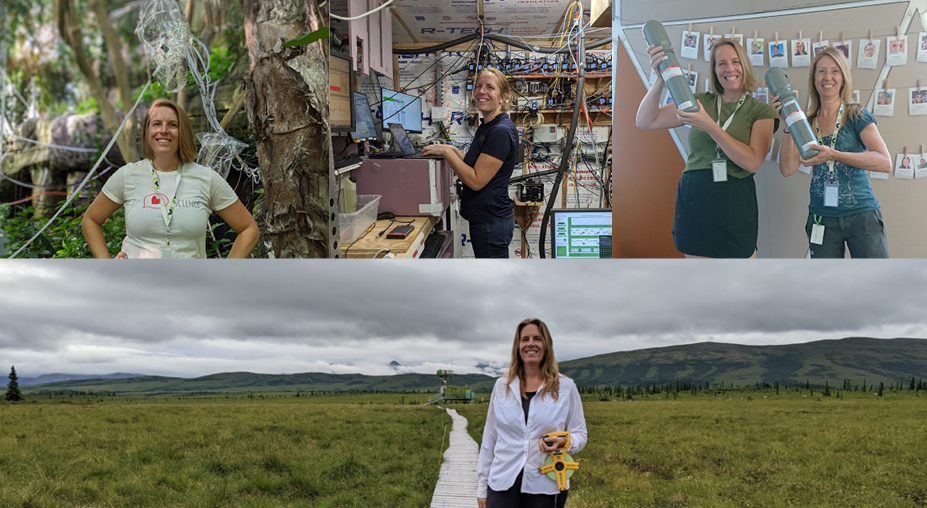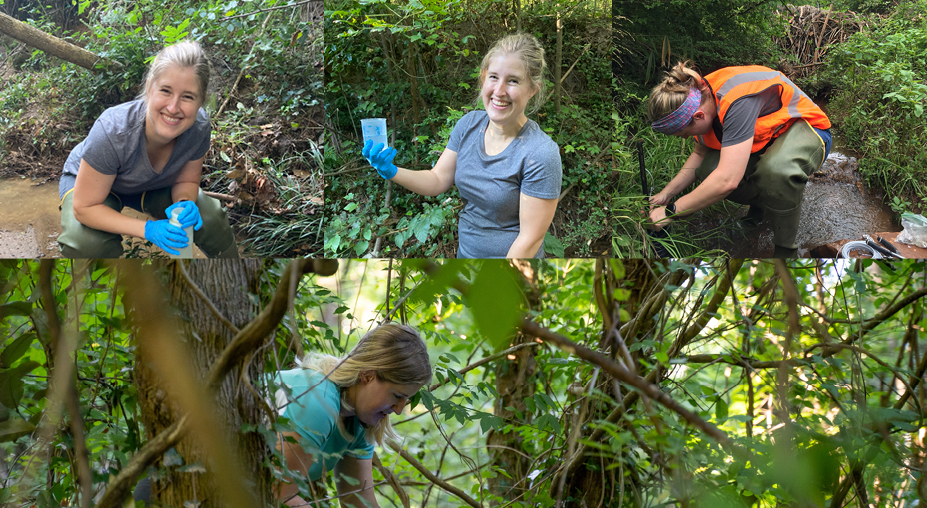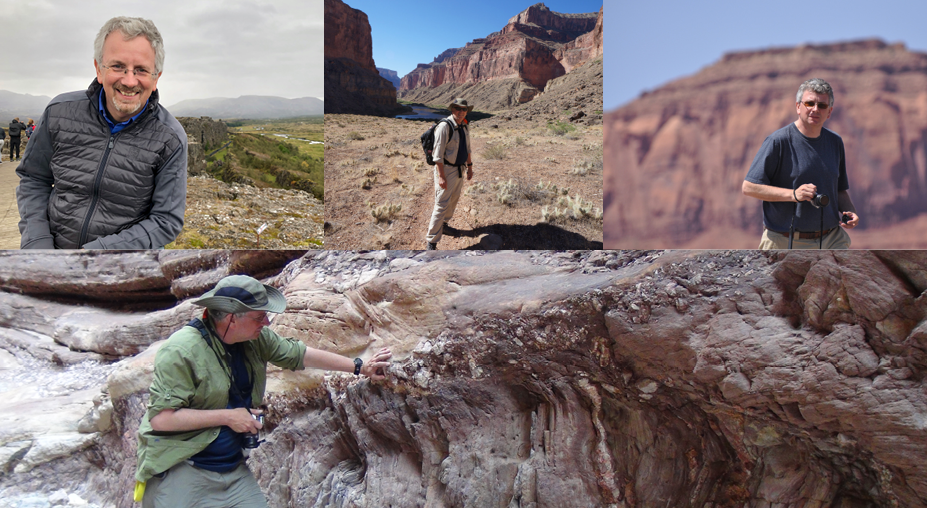Section Awards & Lectures
Biogeosciences Awardees
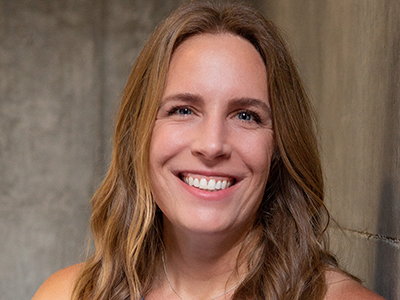
Citation
I am extremely happy to announce that Asst. Prof. Dr. Laura Meredith is the recipient of the 2022 Thomas Hilker Award for her exceptional work connecting the atmospheric science and molecular biology communities to elucidate fundamental questions on ecosystem function using an exciting and creative fusion of high-resolution atmospheric trace gas measurement techniques with metagenomic and metatranscriptomic measurement and modeling.
I first met Dr. Meredith in San Francisco at AGU’s Fall Meeting 2015, where she was discussing results from her prestigious National Science Foundation Postdoctoral Fellowship to investigate the links between CO18O and COS gas exchange from a range of soils and biomes at Stanford University. During this fellowship, Dr. Meredith brought together a range of biogeochemical approaches and collaborators to estimate the abundance and diversity of a family of enzymes, the carbonic anhydrases, between different soils and biomes for the first time and how they related to soil-atmosphere gas exchange. Since then, Dr. Meredith has moved on to establish her own research group (https://www.laurameredith.com/) at the University of Arizona where she continues to develop her expertise in sophisticated state-of-the-art gas exchange measurements of trace gases and microbial genomics to develop novel insights into biogeochemical cycles and ecosystem function. In particular, Dr. Meredith stepped into a leadership position within the community by becoming director of the Biosphere 2 Tropical Rain Forest facility. In this role, Dr. Meredith impressively coordinated a large-scale rain forest manipulation experiment at Biosphere 2 with over 90 participants from 14 institutions and five countries to investigate the role of drought on the exchange of biogenic volatile organic compounds (BVOCs) and trace gases from tropical plants and their rhizosphere communities. Throughout the 5-month campaign, she demonstrated her impressive leadership capacity, which is outstanding for an earlier career scientist. This unique whole-ecosystem 13CO2 and deep-water labeling experiment comprehensively addressed fundamental small-scale processes all the way up to integrated ecosystem fluxes, linking metabolism to ecosystem function.
For all these reasons, all her letter writers agree that Dr. Meredith is an outstanding early-career scientist who has made significant contributions to the field of biogeosciences that are worthy of recognition by the AGU Thomas Hilker Early Career Award.
—Lisa Wingate, French National Research Institute for Agriculture, Food, and Environment (INRAE), Paris
Response
I am honored to receive the Thomas Hilker Award. It is humbling to become one of the esteemed recipients of this award, which memorializes the contributions of Thomas Hilker to diverse research topics in the biogeosciences.
Biogeosciences is not where I started, but it is where I have found my home. As a graduate student of atmospheric chemistry, I was astounded by the sensitivity of the global atmosphere to the terrestrial microbiome. Excitingly, many questions persist on the role of soil microbes in biosphere-atmosphere exchange, and rapid advances in genomics and trace gas detection open new opportunities for integration. It has been my goal to build understanding and tools at this interdisciplinary frontier by connecting the atmospheric science and molecular biology communities.
I am deeply grateful to mentors for their guidance along my academic journey, including Paula Welander, Tanja Bosak, and Colleen Hansel, who supported my first steps in microbiology, and my nominators, Lisa Wingate, Steve Wofsy, Scott Saleska, Christiane Werner, and Brendan Bohannan, who model excellence in the biogeosciences. To my collaborators who are as eager to teach through research as they are to learn, I thank you for creating space to grow and take new directions. I would like to thank Christiane Werner and S. Nemiah Ladd, my coleads of the Biosphere 2 Water, Atmosphere and Life Dynamics rain forest drought campaign, and the entire campaign team for their skill, tenacity, and positivity. I am grateful to the University of Arizona and Biosphere 2 for institutional support. Finally, I thank the talented members of my group for their research and mentoring contributions. I am particularly grateful for undergraduate and high school researchers whose trust, curiosity, and enthusiasm never fail to revitalize my zeal for the research process.
I am proud to be a part of the field of biogeosciences for its embrace of diverse approaches to answering critical questions for our global future, and I am deeply grateful for your support and for honoring me with the Thomas Hilker Award.
—Laura Meredith, School of Natural Resources and the Environment, University of Arizona, Tucson
Field Photos
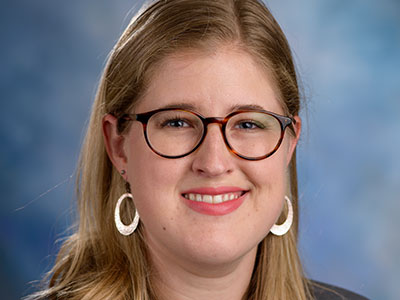
Citation
Prof. Sarah H. Ledford, assistant professor of geosciences at Georgia State University, embodies the values of the Sulzman Award through her significant contributions as a role model and mentor for the next generation of biogeochemists. She has made significant contributions to diversity and equity in geosciences, particularly in taking concrete steps to remove barriers for students from underrepresented groups to pursue graduate school in geosciences. Her research seeks to establish a new paradigm to account for complex interactions between infrastructure and natural processes, and the influence of spatial and temporal scales, on urban hydrology and nutrient processing. Her lab’s research integrates environmental justice and urban water quality, in collaboration with community partners and public health researchers.
Dr. Ledford’s efforts to increase equity in graduate admissions are rooted in a desire to move toward holistic evaluations for graduate admissions. As one piece of this, she created an online database to compile U.S.-based geology and geography programs that had dropped the Graduate Record Examination requirement, both as a resource for potential students and to increase pressure for programs to continue to drop the requirement. She has been a focal point in the #GeoGRExit movement for the past 3 years. Since 2019, 121 U.S. academic geoscience departments have permanently dropped the GRE requirement.
Along with efforts to shift graduate admissions, Dr. Ledford incorporates centering students as individuals in her teaching approach. In her classes, Dr. Ledford empowers her students to apply the ideas learned in the classroom to places and topics that resonate with them, directly building on their cultural background and personal experiences and resulting in a stronger connection and understanding of the material. In her 4 years at Georgia State, she has mentored two undergraduates and 15 master’s students through research projects. She also has worked as a leader in the broader hydrology and biogeochemistry community to improve equity and justice over the past 2 years as a member of the board of directors of CUAHSI (Consortium of Universities for the Advancement of Hydrologic Science, Inc). Last, Dr. Ledford has worked directly with multiple community groups, bringing her expertise and that of her students to work alongside community members. She and colleagues have organized dozens of volunteers to collect and analyze water samples from urban streams, drawing the attention of municipal agencies to mitigate the harms of sewage contamination.
—Jennifer B. Glass, Georgia Institute of Technology, Atlanta
Response
I want to start by thanking the amazing mentors, colleagues, friends, and family who have supported and challenged me through my career so far. I want to thank my letter writers and especially Dr. Jennifer Glass for nominating me for this award; the AGU Biogeosciences section; and my Ph.D. adviser, Dr. Laura Lautz, and my postdoctoral adviser, Dr. Laura Toran, for their endless support. This award is special to me because when I look at the list of past winners, I think, “These are the scientists I want to emulate.” They are examples of scientists who value people as people first and fight to promote justice and equity in science, technology, engineering, and mathematics (STEM) and academics, along with being wonderful researchers. To be seen in that light, to me, means I am following the correct path.
I started the #GeoGRExit database because I wanted to fight for the students I was already working with, whose skills as growing scientists were not reflected in a score on a test. So I also want to thank my students for being so amazing to work with—I am so lucky to learn and grow with them. Leveraging a terrible global pandemic into trying something new for graduate admissions, that is, dropping the Graduate Record Examination (GRE) requirement, was unfortunate luck. I hope the geoscience community continues to listen to the research that shows that our inequitable methods go beyond the GRE and moves to make graduate admission processes more equitable.
Finally, I want to thank the watershed advocacy groups in Atlanta with whom I have been lucky enough to work and with whom I look forward to continuing to build accountable partnerships. I hope the data we collect together can lead to lasting improvements in water quality and quality of life in these watersheds. Learning about the life and legacy of Dr. Elizabeth Sulzman, I dedicate this award to continuing to fight to improve the world in light of the many epidemics we face, including structural racism, mental health disease, and gun violence.
—Sarah H. Ledford, Georgia State University, Atlanta
Field Photos
